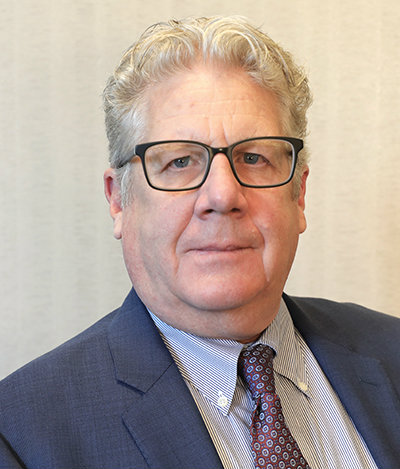Late last month, a state representative in Pennsylvania took aim at reverse mortgage counseling by proposing legislation designed to curb the “pitfalls” of engaging with reverse mortgage products offered under the Federal Housing Administration (FHA)’s Home Equity Conversion Mortgage (HECM) program. It would do this by restricting the HECM counseling process to face-to-face sessions only within the state. Now, the primary sponsor has found 17 colleagues to serve as co-sponsors, and introduced the proposed bill to the state legislature at the end of January.
However, representatives of the National Reverse Mortgage Lenders Association (NRMLA) recently explained that the reverse mortgage industry has some concerns about the bill as it was introduced, but are hoping to work with the legislators in the hopes of developing support for it. This is according to the language of the bill according to the Pennsylvania State House of Representatives, and an email alert sent to the NRMLA membership this week.
The new counseling bill, support in the Penn. House
The newly-introduced reverse mortgage counseling bill is designated as H.B. 2316, with Rep. Morgan Cephas (D) serving as primary sponsor. It would require licensed reverse mortgage loan officers or brokers active within the state to both provide in-person counseling to a potential borrower as well as to present alternatives to a reverse mortgage, according to the bill’s language.
“[The licensee shall] provide in-person, face-to-face housing counseling to the applicants from a housing counseling agency that is approved by the United States Department of Housing and Urban Development in this Commonwealth,” the bill’s first provision reads. “The housing counseling agency shall provide advice on a reverse mortgage loan and alternatives to a reverse mortgage loan,” reads the second provision.
Unlike a similar requirement that exists in Massachusetts — and which has caused a slew of difficulties for reverse mortgage professionals in that state due to senior anxiety stemming from the COVID-19 pandemic — the Pennsylvania bill also includes provisions that would except the face-to-face requirement based on a couple of key criteria.
“If applicants are unable or choose not to schedule an in-person, face-to-face visit with a housing counselor by either traveling to a housing counseling agency or having an in-home visit from a counselor, [the licensee may] conduct the housing counseling over the telephone or through video teleconference,” the provision reads.
The bill also specifies the next steps after a reverse mortgage counseling session is completed, and would require the HECM loan applicant to be issued a certificate containing the signatures of both the counselor and the applicant and the date their session took place; as well as the name, phone number, and address of both the reverse mortgage applicant and the counseling agency that served them.
Interestingly, while the Pennsylvania House is currently under the control of Republicans, Rep. Cephas and all but one of her co-sponsors are members of the Democratic Party.
The full list of Democratic sponsors includes representatives Cephas, Maureen Madden, Danilo Burgo, Napoleon Nelson, Stephen Kinsey, Joe Hohenstein, Ben Sanchez, Robert Freeman, Rick Krajewski, Darisha Parker, Dave Delloso, Elizabeth Fiedler, Liz Hanbidge, Emily Kinkead, John T. Galloway, Manuel Guzman and Joseph Ciresi. The sole Republican co-sponsor is Jim Cox, who is currently serving as chair of the body’s labor and industry committee.
Reverse mortgage industry response
NRMLA submitted a letter to the 18 sponsor lawmakers and explained that it is “generally supportive” of the bill, but that it had identified a number of specific issues that need to be addressed according to a weekly email update to the association’s membership. The first such issue as pointed out by the association is that the bill would require reverse mortgage prospects to receive counseling from an agency based in Pennsylvania.
“At the moment, there are only five HUD-approved HECM counseling agencies in the commonwealth,” NRMLA said in its update.
This echoes a similar issue being faced in Massachusetts, where there are similarly only five full-time HUD-approved counselors and two part-time counselors, adding a great deal of logistical difficulty for borrowers and counselors alike.
“NRMLA commented that under the HECM program, lenders must provide prospective senior applicants with a list of HUD-approved counseling agencies, including national intermediaries that provide counseling services over the phone and can be located anywhere in the country,” the association said. “NRMLA added that in some cases, the nearest counseling agency could be located in an adjoining state. For these reasons, NRMLA has asked the lawmakers to remove the requirement that the counseling agency must be based in Pennsylvania.”
NRMLA also pointed out that the requirement to include the borrower’s phone number on the counseling certificate could create other issues.
“In its letter, NRMLA explained that there is no data field for a person’s phone number and, for privacy reasons, some borrowers may not want to disclose it,” the association said in its update.
When reached for additional perspective, NRMLA President Steve Irwin explained that this is part of the regular course of the association’s work and that it looks forward to a continued dialogue with lawmakers on this topic.
“Our outreach effort to the Pennsylvania bill’s sponsors is typical of the state-level work we continue to do on behalf of our members,” Irwin told RMD. “I don’t believe the bill’s sponsors are necessarily with the policies put in place by HUD regarding the use of national intermediaries, and we will continue our work to educate the sponsors on these matters.”
Read the proposed bill at the state legislature’s website.







